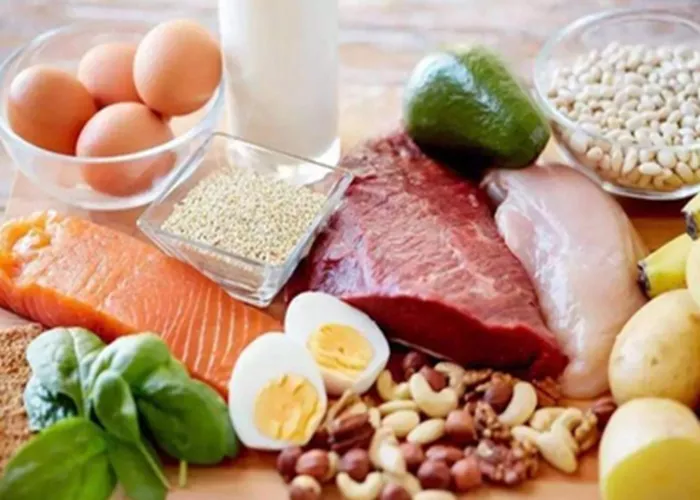When it comes to weight loss, nutrition plays a pivotal role, especially when combined with regular exercise. The timing and type of food intake before and after workouts can significantly impact your fitness journey. This article delves into the intricacies of pre- and post-workout nutrition, providing insights into what to eat, when to eat, and why it matters.
Pre-Workout Nutrition: Fueling Your Body for Optimal Performance
The Role of Carbohydrates
Carbohydrates are the body’s primary source of energy, especially during physical activities. They are stored in the muscles and liver as glycogen and are essential for sustaining energy levels during workouts. Consuming carbohydrates before a workout helps maintain blood sugar levels and ensures that your muscles have enough energy to perform optimally.
For workouts lasting less than an hour, a small snack rich in simple carbohydrates (like a banana or a piece of fruit) can provide a quick energy boost. However, for longer workouts or more intense exercises, a meal containing both simple and complex carbohydrates (such as whole-grain toast with banana slices or oatmeal) is recommended. This combination allows for a steady release of energy throughout the workout.
The Importance of Protein
Protein is crucial for muscle repair and growth. Eating protein-rich foods before a workout helps prepare your muscles for the stress they will endure during exercise. Good sources of protein include yogurt, eggs, lean meats, and legumes.
The Balance of Fat and Fiber
While fats and fiber are essential nutrients, they can slow down digestion and may cause discomfort during workouts if consumed too close to the exercise session. It’s best to avoid high-fat and high-fiber foods 2-3 hours before a workout.
Practical Tips for Pre-Workout Meals
- Timing: Aim to eat a larger meal 2-3 hours before your workout. For snacks, eat 1-2 hours before.
- Portion Size: Keep meals moderate, especially if you’re eating closer to your workout time.
- Hydration: Don’t forget to drink plenty of water before, during, and after your workout.
- Post-Workout Nutrition: Supporting Muscle Recovery and Growth
After a workout, your body needs to replenish its energy stores, repair damaged muscles, and recover. The right nutrients at the right time can significantly enhance this process.
The Role of Carbohydrates and Protein
Immediately after a workout, your muscles are particularly sensitive to nutrients, making it an ideal time to consume a mix of carbohydrates and protein. Carbohydrates help restore glycogen levels, while protein supports muscle repair and growth.
A good post-workout meal or snack should contain a ratio of大约3:1的碳水化合物与蛋白质. For example, a meal of chicken and sweet potatoes or a protein shake with fruit provides the necessary nutrients.
The Window of Opportunity
The 30-60 minutes after a workout is known as the “anabolic window,” a period where your muscles are particularly responsive to nutrient intake. Eating within this window can maximize muscle recovery and growth.
Practical Tips for Post-Workout Meals
- Timing: Aim to eat within 30-60 minutes after your workout.
- Balanced Nutrition: Ensure your meal contains both carbohydrates and protein.
- Hydration: Continue to drink water to stay hydrated.
The Debate: Should You Eat Before or After a Workout for Weight Loss?
The question of whether to eat before or after a workout for weight loss often arises. The answer isn’t straightforward and depends on various factors, including your fitness goals, workout intensity, and personal preferences.
Fasted Workouts: Burning Fat?
Some people advocate for fasted workouts, believing that exercising on an empty stomach forces the body to burn more fat for energy. While it’s true that your body may use more fat as fuel during a fasted workout, it’s also important to consider the overall impact on performance and recovery.
Fasted workouts can lead to decreased performance, increased fatigue, and slower recovery times. For most people, eating a small, balanced snack before a workout is beneficial for maintaining energy levels and supporting muscle function.
The Role of Post-Workout Nutrition in Weight Loss
Post-workout nutrition is crucial for weight loss as it supports muscle recovery and growth, which in turn boosts metabolism. Eating a balanced meal or snack within the anabolic window helps ensure that your body doesn’t go into a catabolic state (where it breaks down muscle tissue for energy).
Moreover, consuming the right nutrients after a workout can reduce feelings of hunger and prevent overeating later in the day.
Practical Tips for Weight Loss
Listen to Your Body: Some people may feel more comfortable working out on an empty stomach, while others may need a small snack. Experiment to find what works best for you.
Focus on Quality Nutrients: Prioritize whole, nutrient-dense foods that provide a balance of carbohydrates, protein, and healthy fats.
Stay Hydrated: Proper hydration is essential for weight loss and overall health.
Conclusion
The timing and type of food intake before and after workouts play a critical role in supporting your fitness goals, whether you’re aiming for weight loss, muscle gain, or overall health. By fueling your body with the right nutrients at the right time, you can enhance performance, boost metabolism, and support muscle recovery and growth.
Remember, there’s no one-size-fits-all approach to nutrition. Experiment with different foods and meal timings to find what works best for your body and fitness journey. And always prioritize hydration, as it’s essential for optimal performance and recovery.
Related topic:


